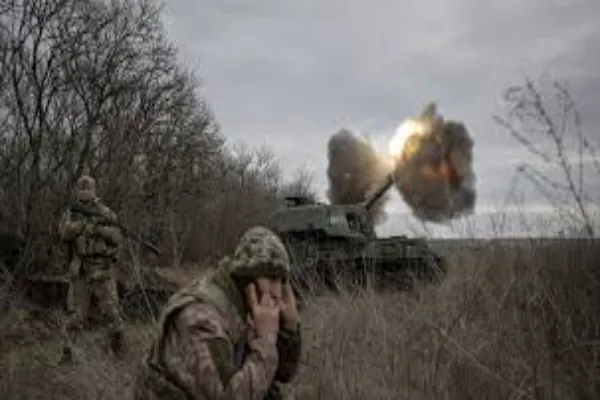
Years into the Russian invasion of Ukraine, the conflict continues to cast a long shadow over global affairs. The war, which began on February 24, 2022, has resulted in significant loss of life, widespread destruction, and a major refugee crisis.
Key Developments

- Intense Fighting in the East: The conflict has intensified in the eastern regions of Ukraine, particularly in the Donbas. Russian forces have made slow but steady advances, while Ukrainian troops have mounted fierce resistance.
- Ukrainian Counteroffensive: Ukraine has launched several counteroffensives to reclaim territory lost to Russia. While these operations have yielded some successes, the fighting remains intense.
- Global Impact: The war has had far-reaching consequences, including soaring energy prices, food shortages, and increased geopolitical tensions. NATO and the European Union have provided significant military and financial aid to Ukraine.
- Humanitarian Crisis: Millions of Ukrainians have been displaced from their homes, seeking refuge in neighboring countries and within Ukraine itself. The war has also caused significant damage to infrastructure, including homes, schools, and hospitals.
The Uncertain Future of the Russo-Ukrainian War
The trajectory of the Russo-Ukrainian War remains shrouded in uncertainty. While a decisive military victory for either side seems unlikely, the conflict could persist for an extended period, leading to further loss of life and destruction. Diplomatic efforts, though ongoing, have yet to yield substantial progress. A potential ceasefire or negotiated settlement could offer a glimmer of hope, but the deep-seated animosity between the two nations poses significant challenges to achieving a lasting peace.
Global Economic Repercussions of the Russo-Ukrainian War
The Russo-Ukrainian War has had far-reaching implications for the global economy. Disruptions to global supply chains, particularly for commodities like wheat and energy, have led to increased inflation and economic uncertainty. The war has also accelerated the decoupling of the global economy, with countries seeking to reduce their reliance on Russian energy and other resources. Furthermore, the conflict has heightened geopolitical tensions and increased the risk of a broader military confrontation, which could have catastrophic consequences for the global economy.
Economic Winners and Losers in the Russo-Ukrainian War
The Russo-Ukrainian War has had a significant impact on the global economy, with some countries benefiting from the conflict while others suffer losses.
Economic Winners:
- Energy-Exporting Countries: Countries like the United States, Canada, and Norway, which are major exporters of natural gas and oil, have benefited from increased global demand and higher prices.
- Arms Manufacturers: Defense contractors in countries like the United States and Europe have seen increased demand for military equipment and weapons.
- Agricultural Exporters: Countries that export agricultural products, such as the United States, Canada, and Brazil, have benefited from increased demand as Russia and Ukraine, major global food exporters, have been disrupted by the war.
Economic Losers:
- Europe: European countries heavily reliant on Russian energy, such as Germany and Italy, have faced significant economic challenges due to rising energy costs and supply disruptions.
- Ukraine: The war has devastated the Ukrainian economy, causing widespread destruction and displacement.
- Russia: The imposition of Western sanctions has severely impacted the Russian economy, leading to a decline in GDP and increased inflation.
- Global Economy: The conflict has contributed to global economic uncertainty, higher inflation, and slower economic growth.
It’s important to note that while some countries may benefit from the short-term economic gains of the war, the long-term consequences for global stability and prosperity are significant.






Leave a Reply